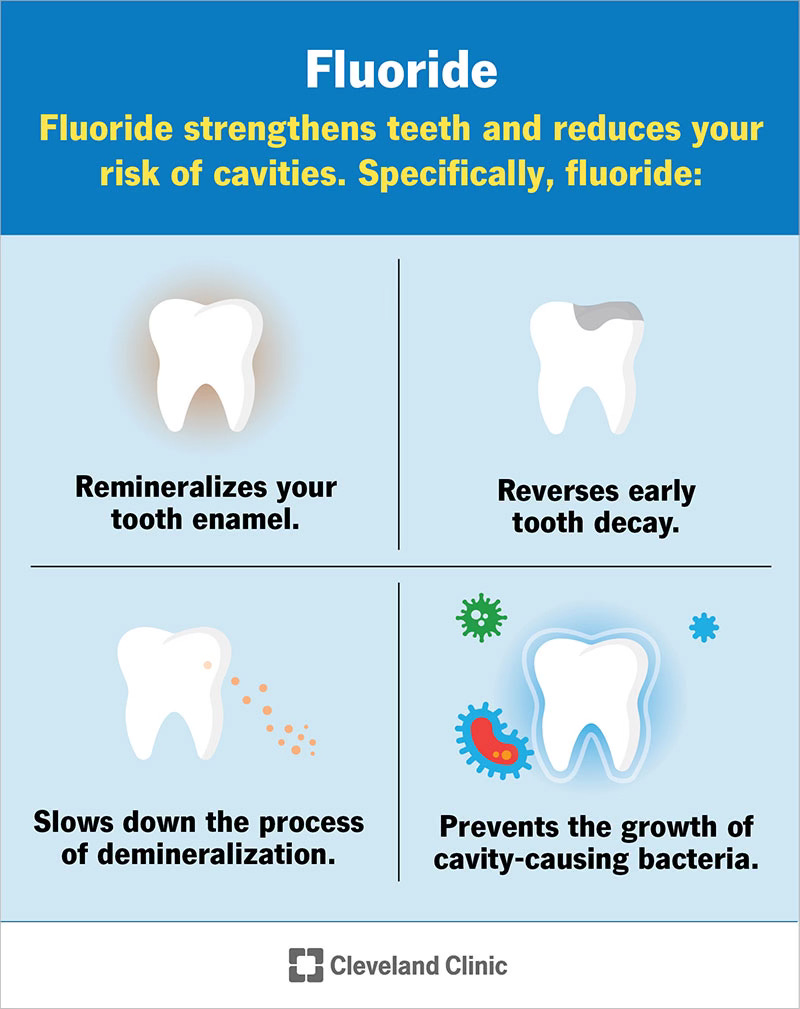Croton's fluoridation wars were fought long ago. Dentists and pediatricians pushed hard for treatment, but in the end they lost.
RFK Jr. is now insisting that the CDC change its long guidance on fluoridation. Croton's water is fluoride-free despite a major push in the early 1980s.
Editor’s Note: We are grateful to village staff for their kind and essential help with the research for this story.
For many, many years, the Centers for Disease Control and Prevention (CDC) has recommended that communities add a trace amount of fluoride to their drinking water. So have most dentists, pediatricians, and scientists who have studied the issue. But earlier this month, Robert F. Kennedy, Jr., Secretary of Health and Human Services, directed the CDC to change its recommendation. As we go to press it has not done so yet, pending a new “study” RFK Jr. is requiring the agency to carry out.
Despite the prevailing scientific evidence on the subject, it is not our purpose here to debate the science itself. Rather, we got curious about why Croton’s water—which comes almost entirely from an aquifer beneath the Croton River—does not have added fluoride. It turns out there is a long history behind it, and that the village actually came very close, in the early 1980s, to adopting fluoridation. With the help of village staff, we were able to access the early village records on the subject, which are kept in a special archive.
The 1950s and 1960s: Mayors Fred B. Dorner, Theodore C. Dunn, and James M. Loconto.
The earliest records available are the minutes of the Croton Board of Trustees meeting of May 23, 1951, when Fred B. Dorner was mayor. As part of the agenda, the village water commissioner raised the possibility of fluoridation of our water sometime in the future, pointing out that it had been tried in other communities and shown to prevent tooth decay. The commissioner passed around a “treatise” on the subject and suggested “it be filed for future reference.”
Then, at the June 27, 1951 Board meeting, the water commissioner reported that he had attended a meeting in Ossining at which engineers from New York State had talked about fluoridation. These talks, the commissioner told the trustees, “disclosed that fluoridation of water is a controversial subject” and that “very few” communities had installed it. He recommended that the village defer consideration of the matter “until more information is available.”
The next apparent mention of the subject came at the meeting of December 14, 1955, when Theodore C. Dunn was mayor. The Board had received a letter from well-known Croton resident Eugene Albert on the subject. Albert noted that the city of Newburgh had gotten favorable results from fluoridation. Albert suggested that the mayor appoint a committee to investigate. (Newburgh was a very early adopter of fluoridation and the site of some of the first positive studies of its benefits.)
There is no record that such a committee was appointed, however. The next apparent mention of fluoridation is in the minutes of the Board meeting on April 4, 1966, when James M. Loconto was mayor. The Croton-Cortlandt News had run an editorial about fluoridation in our region, and a resident raised the issue at the meeting. Mayor Loconto said that the proposal had been met everywhere with “violent reaction" but that he had an “open mind.” Loconto suggested that the Board of Water Commissioners study the issue.
The 1970s: Mayor Stanley H. Kellerhouse.
Despite Mayor Loconto’s suggestion that a study be done, there is no record that it ever happened. Instead, the issue lingered for several more years. There was a brief mention of the subject at a meeting in the spring of 1970, after Stanley H. Kellerhouse had become mayor; but the next serious discussion did not take place until April 5 of the following year, when a group of pediatricians from the Ossining-Briarcliff-Croton area urged that widespread fluoridation of water supplies be embarked upon. These doctors argued that a dose of one part per million of fluoride had been shown by scientific studies to reduce tooth decay by up to 60%. Moreover, they pointed out, the number of communities across the country that had adopted fluoridation had increased markedly in recent years.
Mayor Kellerhouse pointed out that this topic had been discussed “quite a few years ago” (see above) and that there were a variety of opinions about it. He suggested that the issue be referred to the Water Advisory Committee for study.
Then, the following month, at the May 3, 1971 meeting of the Board, a letter from five Croton-on-Hudson dentists was read out publicly. The dentists (George L. Price, Daniel Saltzberg, Bertram Rechtschaffer, Irving H. Dover, and Jack Klein) argued forcefully that there was “no serious doubt” that fluoridation leads to healthier teeth, especially in growing children, and that there was solid science to back that up. Nevertheless, the dentists lamented:
“Unfortunately, most municipal bodies when given a choice will do nothing and when forced to choose will authorize a study.”
And that’s just what Mayor Stanley H. Kellerhouse did. After stating his personal reservations and suggesting that this should be a personal choice for parents (for example, by adding fluoride to their own private water supplies), Kellerhouse “declared,” the minutes say, that the trustees would ask the “Water Board” to review the topic.
Nearly a full year went by, and finally the Water Advisory Committee had a report ready on how much it would cost. The grand total, including materials, personnel, constructing a new building, and other costs, would come to $134,000 in 1972 dollars. At the end of this discussion at the February 7, 1972 Board meeting, Mayor Kellerhouse concluded that, given the cost estimates, “he could see no such plan in the near future based on the financial situation of the Village at present.”
The 1980s: Under Mayor Robert Price, the fluoridation issue finally makes some waves. A popular dentist steps forward to lead the way.
At the very beginning of our narrative, in 1951, Croton resident and dentist Charles E. Jurka opened his practice in Ossining. His parents were also dentists. There is no evidence that Jurka was involved in any of the earlier campaigns for fluoridation of local water, but he certainly would have been aware of them.
In the fall of 1982, Dr. Jurka made his move. He began to lobby the Board of Trustees, now led by Mayor Robert Price, to consider treating Croton water with fluoride. The Board held a public information session on October 12 of that year, which included representatives of the NY State Board of Dental Health and the Westchester County Health Commissioner; and the Board itself began discussing the subject again in earnest at its October 25, 1982 work session.
The trustees drew up a resolution on the subject and there was some discussion pro and con. At the regular meeting of the Board on November 15, 1982, the public had its chance to speak. And it did. More than 40 residents weighed in for and against the proposal. The objections ranged from concerns about personal choice, limited evidence that fluoridation could discolor teeth, opposition to contaminating the water with anything at all, parental responsibility, concerns about tainting the good taste of Croton water, and suggestions that parents should not expose their children to fluoride but instead limit their intake of sugars.
Among the opponents were the mayor of Nyack, who described a long campaign against fluoridation in Rockland County, and a Croton resident who presented the Board with a petition of 300 signatures against the proposal. The majority of residents who spoke at the meeting were also opposed, although Jurka and another dentist bravely made their case.
The Board continued to “study” the issue, including the possibility of putting it to a vote of Croton residents. Meanwhile Jurka and his allies continued to campaign; at the December 20, 1982 Board meeting they presented the trustees with a petition of 448 signatures, although it was noted in the minutes that 59 were non-residents.
Finally, at the January 17, 1983 meeting of the Board, the resolution to approve fluoridation of Croton water was put before the trustees, although not before yet more public comment for and against, including from Dr. Jurka and two other Croton dentists. (One opponent commented that he objected “to taking someone else’s medication.”)
In the end, the vote in favor of fluoride passed the Board by a vote of three to two (Mayor Price voted no.) But a second resolution also passed, to put the issue before the villagers in a referendum that would take place during the March elections.
Then things got even more complicated. The Board learned that the entire first year of the fluoridation project might be funded by a New York State grant. While the village attorney said it was still legal to put the issue before the voters, at the February 7, 1983 Board meeting, for reasons that are not entirely clear from the minutes, some trustees began to balk. They voted to rescind the referendum. And at the March 21, 1983, meeting of the Board, the mayor and trustees voted unanimously to rescind the January 17 resolution itself.
Do the minutes reflect why there was this sudden change of heart? They do not. Did the Board get cold feet right before an election, given the strength of opposition to fluoridation among villagers? Not clear. Are there any village archives that might explain it? We are told there are none.
Are there villagers who were here then and still alive who might remember what happened? Not that we have been able to find so far, and we have certainly been asking around. Just some very vague memories. (If anyone wants to weigh in on this, please contact us or use the Comments box below.)
One thing seems pretty sure: The issue has not come up again in all these years. And one thing is definitely sure: There is no fluoride added to Croton water.
So in Croton, anyway, RFK Jr. has his wish. Whether the teeth of our village children have benefitted or not from this long history of resisting fluoridation is for the scientists, and not us, to say.
Some villagers may remember the television character “Soupy Sales” (Milton Supman) who was very popular with adults and children, especially during the 1950s and 1960s. (During the 1980s, he hosted a radio show on WNBC.)
Given this history, we can only leave you with something that Soupy used to say during nearly every one of his shows:
“Be true to your teeth, and they will never be false to you.”
**********************************************************************************************************
To share this post, or to share The Croton Chronicle, please click on these links.
Comments policy: Please be polite and respectful at all times.










Thank you for the research. Many communities are re-examining this issue, both pro and con.
Great info! I always wanted to know…. And I love Soupy Sales.